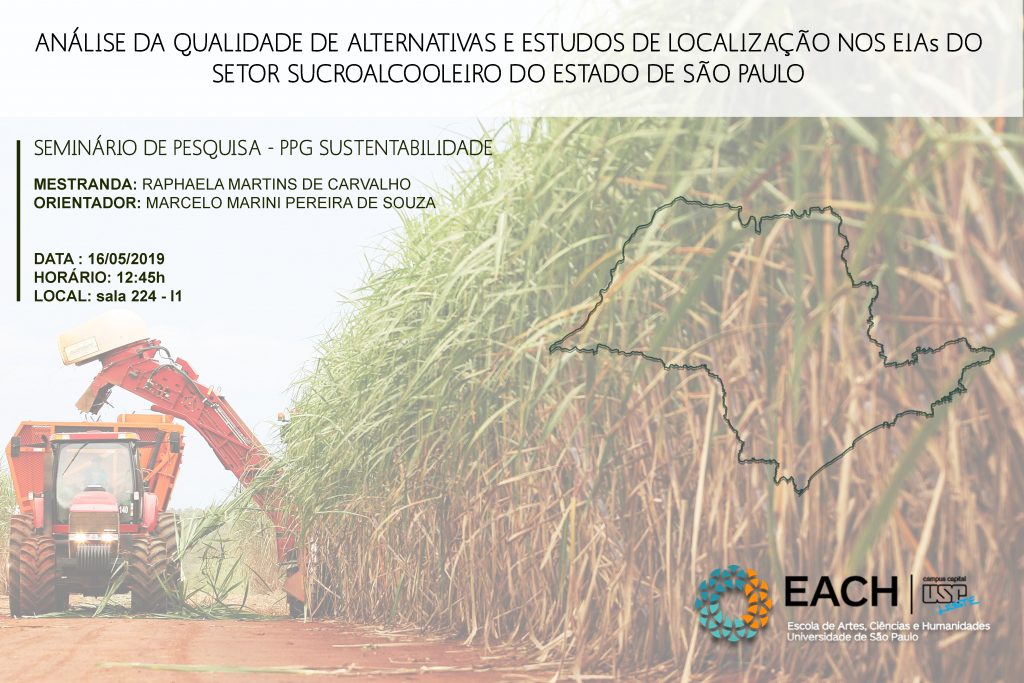May 16th
Abstract: The Environmental Impact Statement (EIS) is the main assessment tool for Environmental Impact Assessment (EIA), since it provides support for decision-making regarding the environmental feasibility of a project, considering the typology-location binomial, besides guiding as between entrepreneur, government and stakeholders. In addition, according to national legislation, the EIS must contemplate all technological and location alternatives of the enterprise, besides to confronting them with a hypothesis of non-execution of the project. Alternatives are considered the core of the EIA, since the quality of the decisions taken depends directly on the quality of the proposed alternatives. Thus, the present work consists of analyzing the quality of alternatives and location studies in the EISs of São Paulo to the implementation and expansion of industrial and agricultural units of the sugar and alcohol sector. For this, a checklist was drawn up, which will be applied through a scoring scale, in EISs against the sugar and alcohol sector of the state of São Paulo, between 2005 and 2018. Also, in order to complement the quality analysis, it will be verified, through a content analysis, how the agro-environmental zoning of the sugar-alcohol sector has been incorporated in the state EISs elaborated between 2009 and 2018. As preliminary results we have a checklist produced specifically for this type of analysis and a scoring scale duly detailed. The next steps of the work are the application of these methods in the EISs and the elaboration of the discussions.




 Imprimir
Imprimir